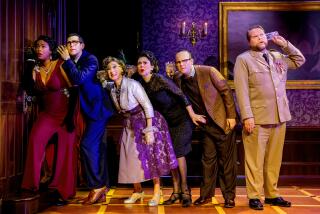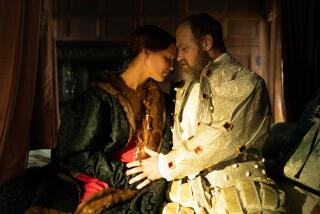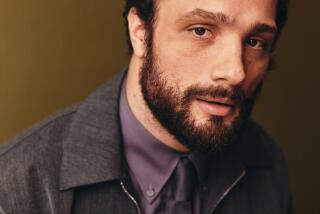‘King’s’ language enters the lexicon
The MPAA may not have liked it, but there are signs that Colin Firth’s therapeutic, stream-of-expletives breakthrough in “The King’s Speech” might be entering the lexicon.
In the film, Geoffrey Rush’s speech therapist, Lionel Logue, encourages Firth’s Duke of York to fashion an F-bomb-laden tongue-twister in order to help beat a lifelong stammer. The blue torrent earned the movie an R rating, though that might be forgotten in the future as the scene becomes emblematic of humanity’s greatest fear: public speaking.
Firth witnessed this firsthand when he attended the recent Los Angeles Film Critics Assn. dinner. Christian Science Monitor critic Peter Rainer, presenting the award for documentary, jokingly prefaced his introduction by noting that he didn’t like public speaking and then proceeded to imitate Firth’s king and swear like a sailor.
“Now I feel better,” Rainer sighed, before continuing.
“We’ve entered the language,” Rush says, laughing, when Firth tells him of the moment. “That is a great opening for people who have to make any kind of public speech, provided, of course, that the audience is right for it.”
Neither actor could understand why the MPAA slapped a restricted rating on the movie for a scene that came straight out of screenwriter David Seidler’s own therapy experiences. In fact, Firth remains a bit baffled over the differences in language between Britain and the United States.
“When I grew up, ‘bugger’ was the worst word you could use,” Firth says. “A teacher slapped me very hard across the face for saying it when I was 5. I didn’t know what it meant. I just thought it had a funny sound.
“You don’t forget a thing like that. So when we’re dubbing movies for the airlines and I’m substituting ‘bugger’ for this and that, it’s quite fun because, to me, I’m using an even worse word. And I wonder what my old teacher would be thinking.”
—Glenn Whipp
?
More to Read
The biggest entertainment stories
Get our big stories about Hollywood, film, television, music, arts, culture and more right in your inbox as soon as they publish.
You may occasionally receive promotional content from the Los Angeles Times.









